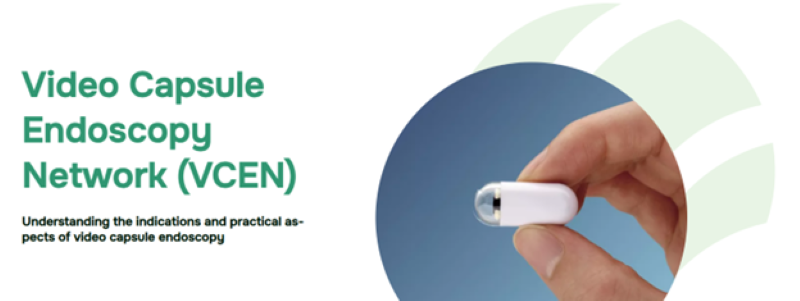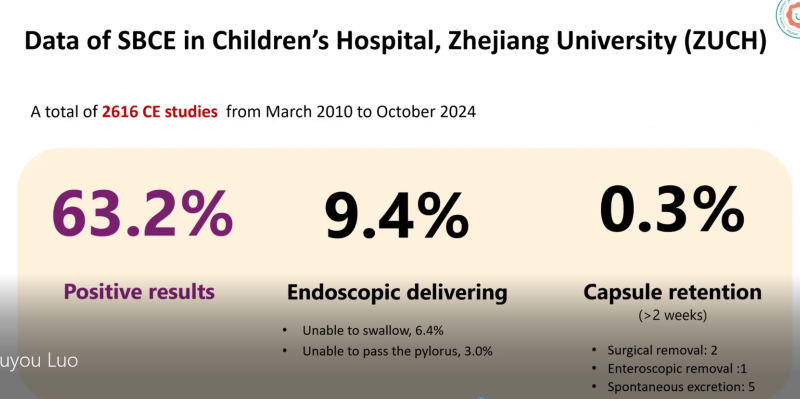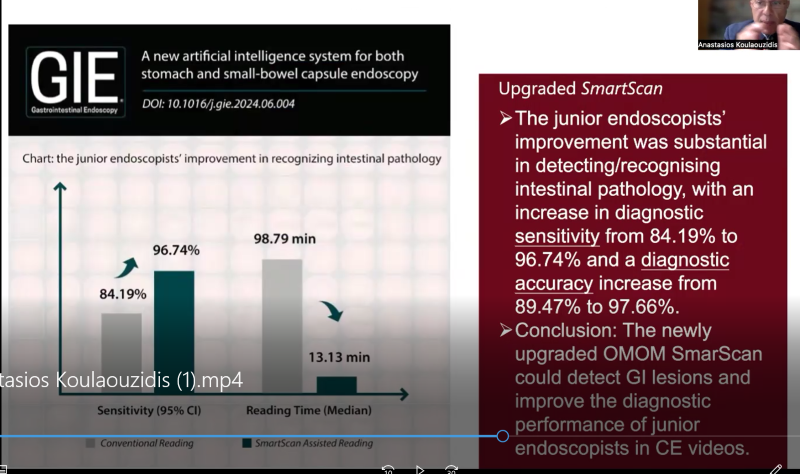Newsroom
JINSHAN is honored to support the WEO VCEN Capsule Endoscopy Webinar Series, an educational initiative by the World Endoscopy Organization (WEO). Launched in 2024, the series serves as a structured learning program for video capsule endoscopy, comprising three thematic webinars and a hybrid congress at the WEO Capsule Endoscopy Global Summit (WEO CEGS).
The recent webinar, held on June 12th, marked another successful milestone in the series, drawing an impressive registration of over 120 participants. The session served as a vibrant forum for leading experts to share their latest research, clinical experiences, and forward-thinking perspectives on the evolving landscape of capsule endoscopy.

1. Update on Capsule Endoscopy for Crohn’s Disease by Prof. Rami Eliakim (Israel)
Prof. Eliakim discussed the role of capsule endoscopy in managing Crohn’s Disease. His presentation covered clinical evidence, emphasizing how capsule endoscopy offers a less invasive method for visualizing the small bowel, important for detecting mucosal lesions and assessing disease activity. He highlighted the integration of capsule endoscopy findings with other diagnostic methods for comprehensive patient management.
2. Capsule Endoscopy for Crohn’s Disease in Children by Dr. Youyou Luo (China)
Dr. Youyou Luo from Zhejiang Children’s Hospital presented on small bowel capsule endoscopy in pediatric Crohn’s Disease. She addressed diagnostic challenges in children and shared her institution’s experience, revealing that her center has conducted an impressive 2616 capsule endoscopy studies between March 2010 and October 2024. Notably, the youngest patient was merely 8 months old, and the lightest weighed 8.8 kg, demonstrating the feasibility and growing acceptance of this technology even in very young children. She highlighted a clear upward trend in capsule endoscopy utilization, attributing it to its less invasive nature and better tolerability compared to conventional endoscopy for detecting small bowel lesions. While acknowledging the limitations, such as the inability to perform biopsies and unguided image capture, Dr. Luo’s presentation strongly advocated for capsule endoscopy as a sensitive tool for identifying subtle mucosal lesions in suspected pediatric Crohn’s Disease, enhancing disease monitoring and facilitating tighter control during follow-up.

3. AI in Capsule Endoscopy: Current Situation and What’s Next? by Prof. Anastasios Koulaouzidis (Denmark)
Prof. Koulaouzidis offered a visionary outlook on the integration of Artificial Intelligence (AI) into capsule endoscopy. He traced the background of AI development in recent years, illustrating its rapid advancements and potential to revolutionize image analysis in medical diagnostics. His presentation explored the current state of published research, showcasing how AI algorithms are being trained to assist in the detection and characterization of abnormalities within capsule endoscopy images. Prof. Koulaouzidis candidly addressed the existing challenges and limitations of AI applications, including issues related to data quality, algorithmic bias, and the need for robust validation. However, his overarching message was one of optimism, emphasizing the immense potential of AI to enhance diagnostic accuracy, reduce reading times, and ultimately improve the efficiency of capsule endoscopy workflows. This forward-looking perspective aligns perfectly with JINSHAN’s strategic investment in AI-powered diagnostic systems, aiming to push the boundaries of what’s possible in gastrointestinal imaging.

4. Small Bowel Inflammatory Disease in China by Dr. Zuo Xiuli (China)
Dr. Zuo Xiuli provided a crucial regional perspective on small bowel inflammatory disease in China. Her presentation shed light on the epidemiological trends, diagnostic challenges, and treatment paradigms specific to the Chinese patient population. This localized insight is invaluable for understanding the global burden of these diseases and tailoring diagnostic and therapeutic strategies to diverse healthcare contexts. Her work underscores the importance of regional data and clinical experience in shaping global best practices.
5. Environmental Impact of Small-Bowel Capsule Endoscopy by Dr. Mathieu Pioche (France)
Dr. Mathieu Pioche introduced a vital and increasingly relevant discussion on the environmental impact of small-bowel capsule endoscopy. In an era of growing ecological awareness, his presentation explored the sustainability aspects of medical procedures, prompting a critical examination of the lifecycle of medical devices and their environmental footprint. This forward-thinking topic encourages the industry to consider not only clinical efficacy but also the ecological responsibility associated with diagnostic technologies. It highlights a broader commitment to sustainable healthcare practices.
The WEO VCEN Webinar Series highlights the power of collaborative progress in medical science. As its supporter, we believe equipping healthcare experts with updated knowledge, advanced tools, and collaboration platforms elevates diagnostic standards, enhances patient care, and drives digestive health forward.
Learn more about the VCEN Program, visit: https://www.worldendo.org/education/vcen